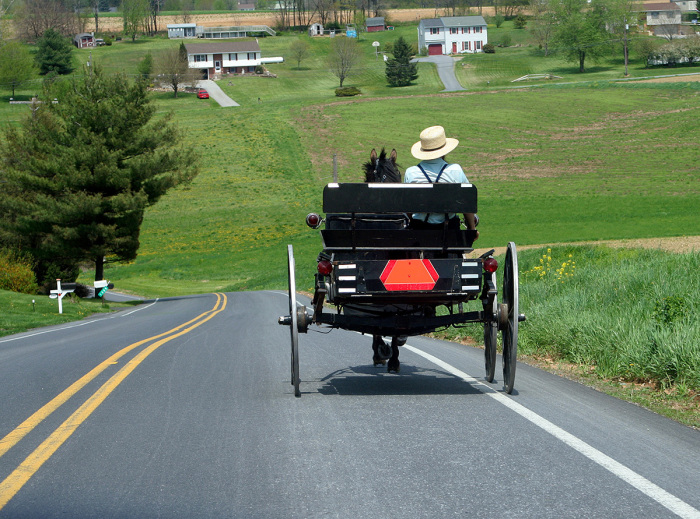Amish survived COVID-19 better than most by not locking down, ceasing church gatherings: report

The Amish community in Lancaster, Pennsylvania, has made it through the coronavirus pandemic without experiencing a catastrophic loss of life despite their refusal to adopt many of the safety precautions portrayed as necessary to prevent widespread loss of life, according to a new report.
While officials in most U.S. cities ordered businesses and churches to close for several months in an attempt to slow the spread of COVID-19, the Amish continued working and never stopped worshiping together at church.
On her news magazine series “Full Measure” Sunday, investigative journalist Sharyl Attkisson reported on the Amish community’s response to the coronavirus pandemic, which differed significantly from the approach taken by the rest of the country.
She described the Amish as a “Christian group that emphasizes the virtuous over the superficial.” In an effort to live a “virtuous” life, many in the group refrain from driving and using electricity.
Attkisson traveled to Lancaster County, well-known for its large Amish population, to talk to locals about how they handled the pandemic. One person she spoke to, an Amish Mennonite named Calvin Lapp, explained: “There are three things the Amish don’t like: And that’s government; they won’t get involved in government. They don’t like the public education system; they won’t send their children to education. And ... they also don’t like the health system.”
“Those three things are all part of what COVID is,” he said. Attkisson noted that “after a short shutdown last year, the Amish chose a unique path that led to COVID-19 tearing through at warp speed.” The community gathered for a religious celebration in May 2020, where they all took communion.
Lapp then described how the Amish take communion: “They dunk their wine into a cup, and they take turns to drink out of the cup. So you go the whole way down the line and everybody drinks out of that cup, so if one person has coronavirus, the rest of the church is going to get coronavirus.”
While he acknowledged that “everybody got coronavirus,” Lapp defended the community’s approach: “It’s a worse thing to quit working than dying. But to shut down and say that we can’t go to church, we can’t get together with family, we can’t see our old people in the hospital, we got to quit working … it’s going completely against everything that we believe.”
About a year after the coronavirus pandemic first broke out in the U.S., national news outlets and The Associated Press wire service reported that the Lancaster County Amish community had reached herd immunity, meaning that “a large part of the population had been infected with COVID-19 and became immune.” However, precise data is difficult to come across because the Amish were hesitant to publicize coronavirus cases in their community.
Steve Nolt, a scholar on Amish and Mennonite culture, told Attkisson that in some cases, “Amish people ... refused to go to the hospital, even when they were very sick because if they went there, they wouldn’t be able to have visitors, and it was more important to be sick, even very sick, at home and have the ability to have some people around you than to go to the hospital and be isolated.”
Nolt added that “even those who ... believed that they had COVID tended not to get tested. Their approach tended to be ‘I’m sick, I know I’m sick, I don’t have to have someone else tell me I’m sick,’ or a concern that if they … got a positive test, they would then be asked to really dramatically limit what they were doing in a way that … might be uncomfortable for them.”
“There’s no evidence of any more deaths among the Amish than in places that shut down tight. Some claim there were fewer here,” Attkisson maintained. “That’s without masking, staying at home” or taking the coronavirus vaccine.
Lapp highlighted that the absence of a prolonged shutdown meant that the Amish “made more money in the last year than we ever did” as the rest of the country experienced economic hardships because of lockdowns. He described 2020 as “our best year ever.”
Ryan Foley is a reporter for The Christian Post. He can be reached at: ryan.foley@christianpost.com




























